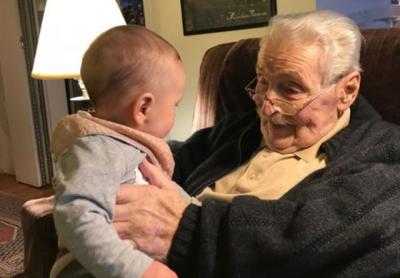Steven Marcus

Steven Paul Marcus of Montauk and Manhattan, a literary critic and a former dean of Columbia College, died on April 25 at New York-Presbyterian Hospital at the age of 89. His death, from cardiac arrest, resulted from an infection following a successful operation for a broken hip.
Mr. Marcus was a fellow of the American Academy of Arts and Sciences and the Academy of Literary Studies and a specialist in 19th-century literature and culture. He was well known for a book he published in 1965, “Dickens: From Pickwick to Dombey.” It has been suggested that his psychologically oriented criticism, especially of Dickens, may have grown out of co-editing an abridged version of Ernest Jones’s three-volume biography of Sigmund Freud in 1961 with Lionel Trilling, with whom he had studied as a Columbia undergraduate.
After teaching briefly at Indiana University and City College of New York, Mr. Marcus won a fellowship to Cambridge University, where he did research for his doctoral dissertation on Dickens and from which he published his first literary criticism in the Partisan Review and Commentary.
In addition to his book on Dickens, he was the author of “The Other Victorians: A Study of Sexuality and Pornography in Mid-19th Century England” and “Freud and the Culture of Psychoanalysis: Studies in the Transition From Victorian Humanism to Modernity,” among others.
He began teaching at Columbia in 1956 and had won Fulbright, Guggenheim, Rockefeller, and Mellon grants, among others, before being made an associate professor there in 1963 and then a full professor of English in 1967. He served twice as chairman of its department of English and comparative literature and was a principal investigator in the Columbia Project on Conflicts in Values and Health Care. He also was a founder of the National Humanities Center, an independent institute operating from North Carolina.
Mr. Marcus was born in the Bronx on Dec. 13, 1928, to the former Adeline Gordon and Nathan Marcus.
He attended William Howard Taft High School, and graduated from DeWitt Clinton High School in the Bronx when he was 15. He won tuition-free scholarships to Harvard and Columbia, choosing Columbia and living at home to save money. He earned a bachelor’s degree in 1948 and wrote his master’s thesis on Henry James.
Mr. Marcus served for two years in the Army, mainly in Greenland. In 1966 he married Gertrud Lenzer, a German sociologist, who survives. Their son, John Nathaniel Marcus, a violinist, also survives, as does a grandson. The couple heard about how lovely Montauk was from friends and bought a house overlooking Fort Pond Bay in 1999. There, his wife said, he enjoyed reading and birdwatching, and ice hockey, football, and movies on television.
Mr. Marcus was named dean of Columbia College in 1993 and vice president for arts and sciences, a dual role, from which he resigned in 1995 to return to teaching. In 2004, he retired, becoming the George Delacorte professor emeritus in the humanities. During his long career, Mr. Marcus wrote many books, was respected as an unconventional critic, and especially admired as a teacher and mentor.
A service for him was held on April 29 at Riverside Memorial Chapel in Manhattan. Donations in Mr. Marcus’s name have been suggested for the Children’s Study Center at Brooklyn College, 2900 Bedford Avenue, 3104 James Hall, Brooklyn 11210.
A memorial gathering is being planned for the fall at the Morningside campus of Columbia by some of his former students, who are now professors there and at other universities.
